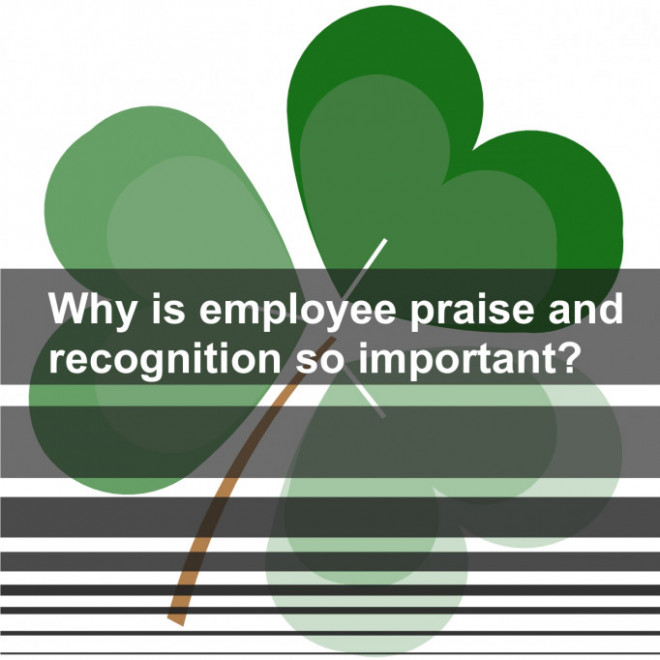The heart of every company is its employees. Sustainable corporate success depends to a large extent on the way employees work. How motivated the employees are and how connected they feel with the company often determines the results of their work. But especially when it comes to motivation, companies often neglect opportunities that would often only mean little effort.
Motivation research: what really motivates people
There are three main needs that motivate us (and of course employees):
- People want to achieve their goals.
They want this to be noticed. In short: you want to be proud of what you do. Accordingly, avoid situations in which there is no prospect of success or it is only slight.
- People are looking for social relationships and belonging.
After all, success can only be enjoyed if it is confirmed by others. Recognition is usually followed by belonging, because this does not apply universally, we are looking to connect to different (interest) groups.
- Power also motivates.
The first two points automatically lead to a certain influence on the respective group: respect, status and influence increase. And that is also an enormous incentive.
Praise and recognition are not the same thing
Quite a few equate praise with recognition, often both terms are even used synonymously. But that's not right. There is one crucial difference:
- praise
is a form of spontaneous appreciation. It must be as specific as possible so that it works and the promised person knows why he or she is receiving it. The boss can praise as well as the colleagues or customers. This form of appreciation is comparable to an occasional pat on the shoulder.
- recognition
is more attitude than spontaneous appreciation: someone recognizes the regular quality or performance of a person - and respects and appreciates the person for it. Recognition does not have to be concrete, on the contrary: it assesses the overall picture.
Regular praise in the job is therefore an important motivator. In order for employees to remain motivated in the long term, they must feel the recognition behind it.
Is it even possible to motivate other people?
Reinhard Sprenger, author of the bestseller "Myth Motivation" says that this is impossible. Although companies try it all the time with all kinds of incentives, such as company cars, bonuses and gifts, efforts do not work. Instead, a vicious cycle is set in motion, which ultimately focuses on reward rather than work. As with a drug, the reward must increase steadily so that motivation is maintained.
Dieter Frey, social psychologist at LMU Munich, is also convinced that consistent motivation and enjoyment of work are privileges that only a few enjoy. This applies to both bosses and their employees:
Many people are motivated because they need work to ensure their livelihood. They need money to live and therefore go to work. But the satisfaction of this existential need is an extrinsic, that is, an external reason to go to work every day. But in the long run, only a few are intrinsic, i.e. motivated from within. This is why managers have to question their colleagues' different desires and interests anew every day - so find an answer to how performance and fairness can be reconciled. A good mood helps, but it is not enough.
Everyone wants to be valued, managers and employees alike. Even if it appears that we are independent, we need others to strengthen our self-esteem. And the motivation is stronger, the more enthusiasm and self-esteem the recognition evokes and possibly even takes the form of a story that the employee can tell his family, friends and colleagues after many years. It is the reward of our work and performance - a kind of value-adding feedback.
Most rewards fall into two categories:
Formal rewards - are usually planned, structured programs that are repeated over time and carried out over years, for example awards such as Employee of the Month or Service Provider of the Year.
Informal rewards - tend to be immediate, are spontaneous forms of sincere gratitude and recognition of good work. They are often individual, funny and distinguish a special behavior, such as special customer service, cost-reducing ideas or excellent teamwork, or they are given for special services such as completing an interim report or a project or closing an important sale.
But there is one thing that is crucial: In order for motivation to work at all, it must be personal and situational. When it comes to recognition, there is no one-size-fits-all solution.
Therefore:
Adjust the person's reward. Start with the person's personal preferences and reward them in a way that he or she finds rewarding. To ensure that recognition does not rely on speculation, you must ask your employees what they value most.
Adjust the reward for performance. Rewards should be tailored to reflect the importance of performance. Of course, an employee who completes a two-year project should be rewarded more stately than someone who just did you a favor.
Be timely and specific. To be effective, rewards must be given as quickly as possible based on the desired behavior or outcome. If this happens weeks or months later, the reward will hardly motivate the employee to repeat his actions. You should always say why the reward is given, that is, make a connection to performance.


 Posted on May 5, 2020 by Anna
Posted on May 5, 2020 by Anna


